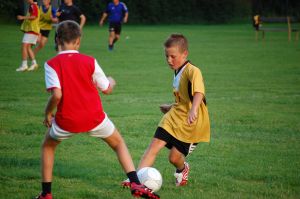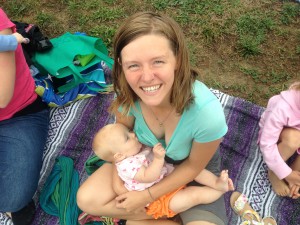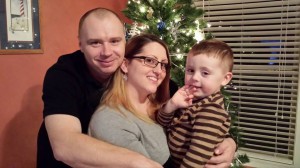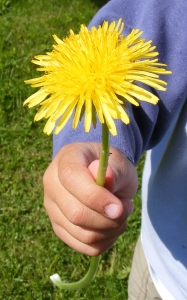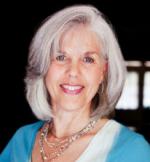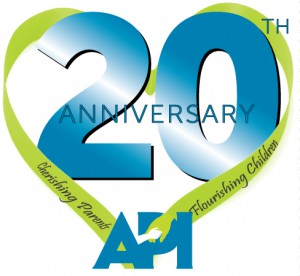 In celebration of Attachment Parenting International’s 20th Anniversary, the four-part “API-Inspired Leadership” series honors the unique paths that inspired parents to pursue API Leadership. Read the first and second part of the series, recognizing Lauren Osborne of Alabama, USA, and Candice Garrison of Tennessee, USA. Following is the third part of the series:
In celebration of Attachment Parenting International’s 20th Anniversary, the four-part “API-Inspired Leadership” series honors the unique paths that inspired parents to pursue API Leadership. Read the first and second part of the series, recognizing Lauren Osborne of Alabama, USA, and Candice Garrison of Tennessee, USA. Following is the third part of the series:
There are many paths that lead parents to Attachment Parenting (AP). For many, like Kelly Shealer of Frederick, Maryland, USA, it was as natural as breathing but finding like-minded parent support isn’t always as easy. Kelly now serves as a leader of API of Frederick.
She also blogs for APtly Said and volunteers with the Attachment Parenting International (API) team creating the Tribute Presentation, to be narrated by Sir Richard Bowlby Bt (API Advisory Board member and son of John Bowlby, the “Father of Attachment Theory”) at API’s 2014 “Cherishing Families, Flourishing Children” Conference on September 26-28 at Notre Dame University in South Bend, Indiana, USA.
RITA: Thank you, Kelly, for your time. Let’s start by learning how you discovered AP.
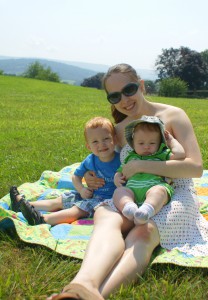 KELLY: I first learned about Attachment Parenting from reading an article by Dr. [William] Sears (API Advisory Board member) during my first pregnancy. The article talked about different ways to practice Attachment Parenting, and as I read it, everything seemed so obvious to me. I couldn’t imagine doing anything differently!
KELLY: I first learned about Attachment Parenting from reading an article by Dr. [William] Sears (API Advisory Board member) during my first pregnancy. The article talked about different ways to practice Attachment Parenting, and as I read it, everything seemed so obvious to me. I couldn’t imagine doing anything differently!
As my son got older, I learned about new aspects of AP, such as positive discipline, which fit with my beliefs and just seemed right for me.
RITA: It sounds like AP was an easy choice for you. Do you find any aspects of AP to be challenging?
KELLY: The biggest challenges I’ve encountered have to do with my belief in positive discipline as opposed to traditional discipline. It’s difficult at times to watch how family members who aren’t familiar with AP interact with my children and are quick to use threats and punishments.
Also, when my children and I attend non-API playgroups, I feel like there’s something different about my parenting style that sets me apart from other people. Reading a lot of books and articles that come from an AP perspective has helped me to feel confident enough in my parenting style that this doesn’t bother me so much anymore.
RITA: So how did you come to API?
KELLY: I first learned about API at a La Leche League (LLL) meeting from one of our leaders who was also an LLL leader. I became involved with the local API group after a negative experience at a non-API playgroup where I felt I didn’t fit in with the other mothers. At the time, I was fairly new to the area and didn’t have any friends who also had children. It was important for me to find other mothers who I felt that I could connect with. Through API, I was able to meet like-minded moms and have made some of my closest mom friends.
RITA: What inspired you to become an API Leader?
KELLY: My API group had been so meaningful and helpful to me when my first son was very young. I had a real need for the support and friendship I found within the group, and as my son got older, I really wanted to be able to be more involved with the group. When our leader mentioned that she was looking for others to co-lead, it really felt right for me to take on the role of API Leader. I’d been looking for a way to help other moms, and this felt like the perfect way for me to do that since our group and API’s Eight Principles of Parenting are so close to my heart.
RITA: How did you find the API Leadership process?
KELLY: I enjoyed going through the process, because it helped me to reflect on my parenting beliefs and experiences, especially when considering how the Eight Principles of Parenting applied to me.
It was also through this process that I found some of my favorite parenting books, including The Science of Parenting by Margot Sunderland and Alfie Kohn’s Unconditional Parenting, which have had a big impact on my parenting.
Editor’s Note: Follow the discussion on these and more books through the API Reads program
RITA: Has API Leadership been as fulfilling as you were hoping?
KELLY: We live in a somewhat transient area, and a lot of the moms who find our group are rather new to the area and don’t know many other moms. I like providing an opportunity to help these new moms get to know others with similar parenting styles. I like that, through meetings and online support, being an API Leader allows me to help new parents with some of the more challenging parts of babyhood and early childhood.
At a recent meeting, one member talked about how good it felt to be around parents with similar viewpoints. I was really struck by her saying, “It’s been really hard constantly defending myself to others.” But at our meeting and with our group, she felt comfortable, normal and accepted. I’m so glad that our group can provide that sort of comfort and support to parents who may not have much support from their friends or family.


